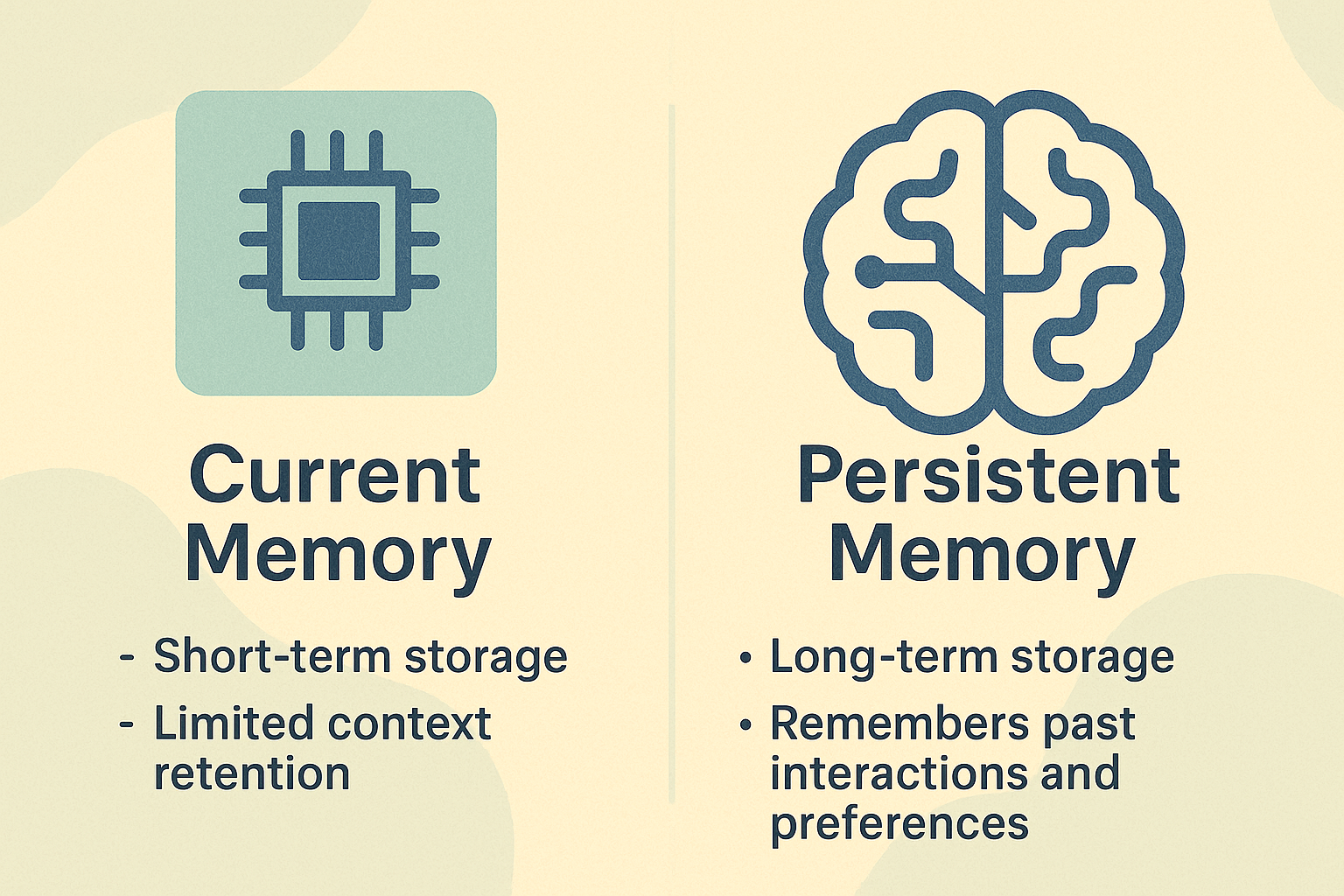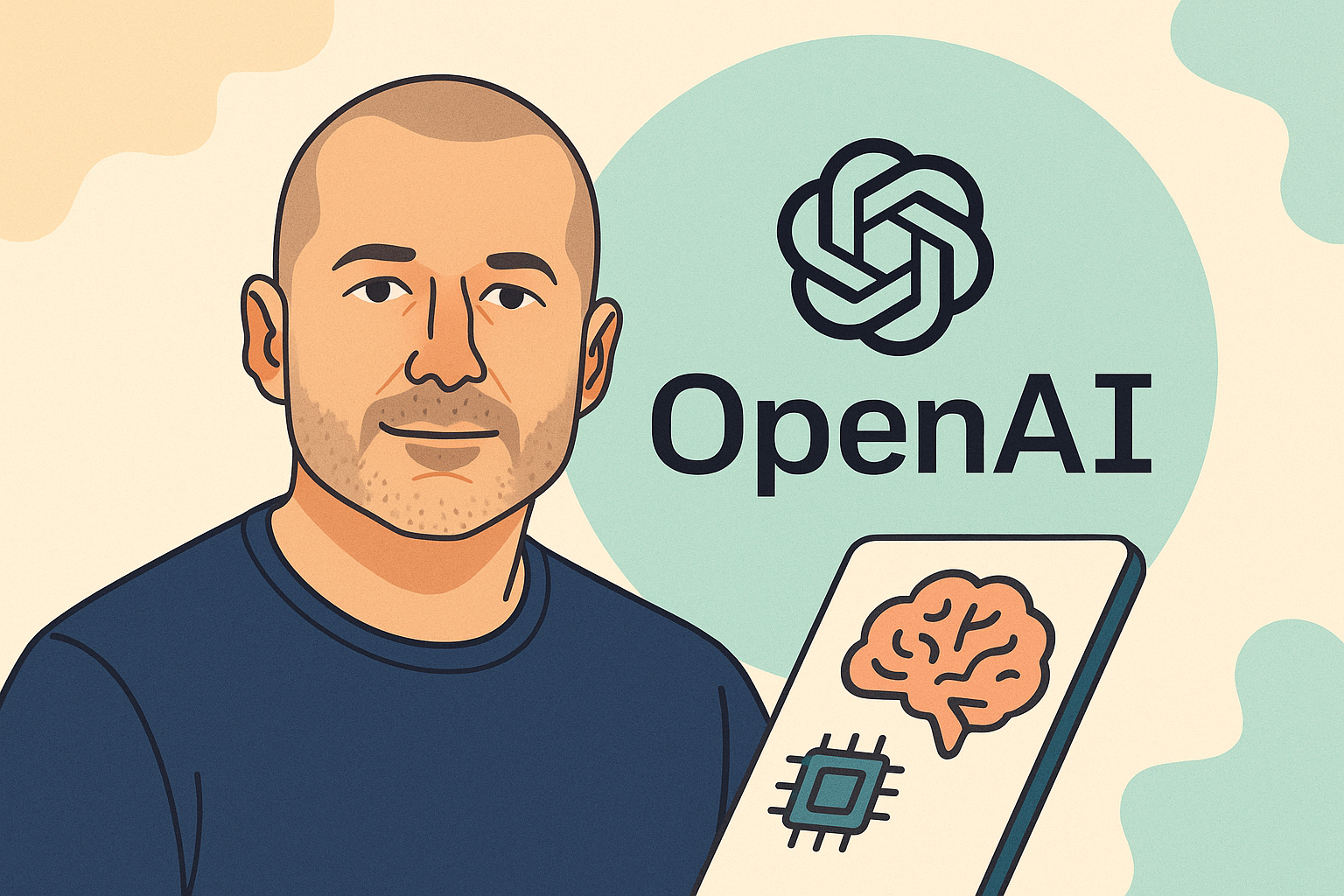🧠 GPT-5 and OpenAI’s Mystery Hardware: What We Actually Know (and What’s Just Noise)
It’s happening again.
The tech world is spiralling into full rumour mode over GPT-5 — and now, there’s hardware on the horizon too.
Altman’s teasing memory. Jony Ive’s name is flying around. And some folks are acting like OpenAI’s about to drop a device that replaces your brain. (Might be dramatic, but still.)
We sifted through the actual leaks, credible reports, and internet wishcasting to separate what’s probably happening from what’s just... Reddit with better fonts.
🧠 “GPT-5 Will Remember You” — But What Does That Actually Mean?
OpenAI already dipped into memory territory with GPT-4. It sort of remembers your preferences… sometimes. When it feels like it.
But GPT-5? If the leaks are even half right, we’re talking about something that feels a lot more like a real assistant — not just a glorified autocomplete.
Here's what could be coming:
Persistent memory that evolves with you — it remembers your vibe, your goals, your spicy takes.
Cross-session context — ask it something next week and it’ll still know what you meant.
Task continuity — like starting a vacation plan in one convo, then picking it up later with no hand-holding.
In plain speak? Your AI might finally stop acting like a goldfish.
Better Reasoning, Faster Replies, and a Whole Lot Less “Uh… What?”
Current memory forgets; persistent memory remembers. This visual captures what might be GPT-5’s biggest upgrade.
Every GPT release promises upgrades in logic and performance — and GPT-5 is shaping up to be no different. But this time, the jumps might be noticeable even to non-nerds:
Improved reasoning under pressure — fewer “Umm actually” moments when things get technical.
Way bigger context windows — think hundreds of pages worth of info in one go.
Multimodal done right — speak, type, show it a pic… and it actually gets it.
This could be the update where GPT finally feels less like a chatbot — and more like a capable coworker that doesn’t steal your lunch from the fridge.
So… OpenAI Is Making Hardware Now?
Yeah, apparently.
According to The Information, Financial Times, and other credible outlets, OpenAI is cooking up its own hardware — and it’s not just another Echo knockoff.
What’s rumoured:
A voice-first assistant — something wearable, always listening, ChatGPT baked-in
An AI-native smartphone — designed from scratch around language models, not apps
A minimal screen companion — ambient, lightweight, less “phone,” more “presence”
And here’s the kicker: Jony Ive — the guy behind the iPhone, iMac, and basically everything Apple looked good doing — is helping lead the design.
Why Jony Ive’s Involvement Actually Matters
Jony Ive’s design touch might shape OpenAI’s first hardware.
Jony Ive isn’t just there for the aesthetics. His name signals that OpenAI isn’t thinking “another gadget” — they’re thinking new category.
He’s the reason your iPhone doesn’t have a keyboard and your iMac isn’t beige. With him on board, this rumoured device might actually feel like it belongs to this AI moment — not just retrofitted for it.
This isn’t about making Siri cooler. It’s about designing something that feels native to AI from the jump.
But Not Everyone’s On Board
There’s already scepticism bubbling up — and honestly, fair enough.
Humane flopped. Rabbit’s device fizzled. People are tired of “revolutionary AI gadgets” that turn out to be expensive beta tests.
The fear? OpenAI drops something cool-looking that sounds amazing… but doesn’t do enough to justify ditching your phone.
Oh, and let’s not ignore the privacy side-eye: a wearable AI assistant that remembers everything? Yeah, not everyone’s sold on that.
What’s Real vs. Just Rumour?
Let’s separate the fact from the sci-fi:
Legit Signals
Altman teased “memory” + new interaction styles
Jony Ive partnership confirmed
OpenAI job listings mention AI companions
Multimodal voice already rolling out
Still Vapor
No confirmed GPT-5 release date yet
No hardware specs or visuals
“AI phone” specifics all secondhand
No public demos or prototypes of device
There’s fire under this smoke — but it’s still early days.
So What’s It Mean for You?
If even half this stuff lands in 2025:
You’ll have an AI that feels like a memory-savvy sidekick
Your day-to-day digital tasks might shift away from screens
There could be a new device category built around voice, not apps
But let’s keep it real: OpenAI doesn’t launch things like Apple.
Expect brilliance — but also a bit of chaos.
Final Word: Is This the “iPhone Moment” for AI?
Maybe.
Not because of specs or launch events. But because it’s pushing us from using AI… to living with it.
A device that listens, remembers, and gets you? That’s not a feature update. That’s a shift.
🔥 Cradle Hype Gauge™: 4.6 / 5
This isn’t just GPT-5.
It’s OpenAI trying to rewrite how we interact with tech — memory, voice, presence, design.
And if they pull it off? We’re not just getting smarter tools. We’re getting smarter companions.

